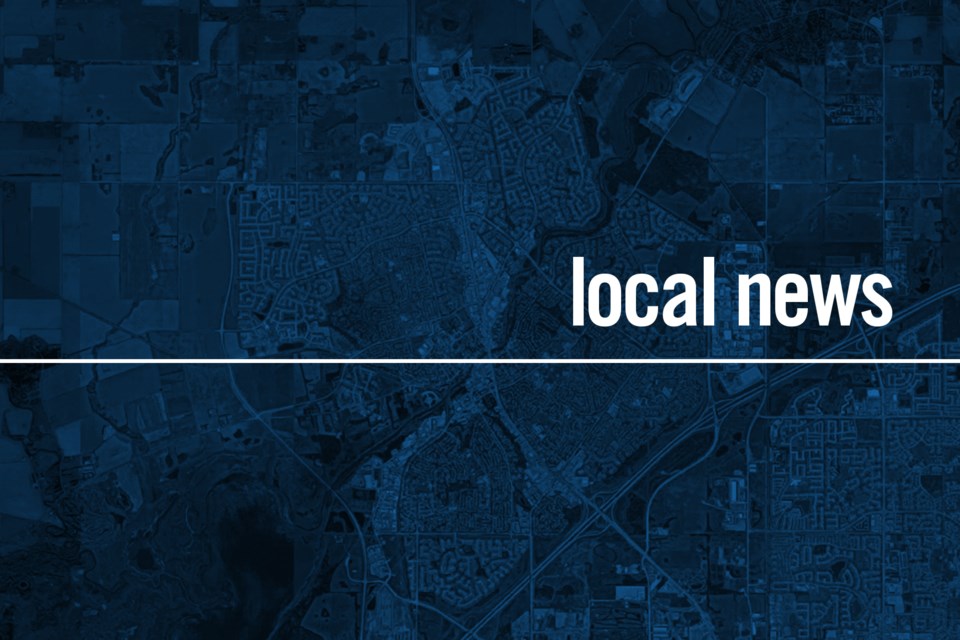The St. Albert Youth Committee delivered a presentation to the St. Albert Policing Committee and participants had plenty to discuss.
Held on Feb. 22 as an online meeting, the hour-long discussion touched on numerous youth priorities such as police-youth relationships, mental health, homelessness, vaping and educational school programs such as D.A.R.E.
For newly installed Inspector Ryan Comaniuk, St. Albert RCMP commander, this was an opportunity to identify youth goals and implement them in the upcoming Annual Performance Plan (APP). Youth feedback and suggestions are the backbone of the APP strategy that balances support and enforcement, he said.
Kristopher Wells, chair for the St. Albert Policing Committee, initially invited the youth committee to address their concerns, and described the meeting as “a robust conversation.”
“Youth face particular vulnerabilities. We want to promote linkages and use these mechanisms to find out their priorities. It can be hard for us to reach youth. Having a youth committee ensures their prospective is brought to the table,” said Wells.
Through his own personal experiences and as an instructor at MacEwan University, he added, “Youth are traditionally disenfranchised, invisible, without agency and we want to make sure they are on the forefront of the decision-making process. Their vulnerabilities lead to marginalization and in some cases can lead to exploitation.”
St. Albert Youth Committee chair Matthew Jackson is keen to develop positive relationships between police and youth. He acknowledges challenges exist between the two groups. Youth are at “an age of rebellion” whereas “police are the guardians of society, but they are not viewed in the light they should be,” said Jackson.
“Police are treated in a way they don’t deserve to be and that leads to problems between youth, police and society. It’s a problem that all police are viewed in a negative light because of the actions of a few.”
The 2018 Bellerose High graduate and now a political science and economics major at MacEwan University advocates early interactions between the two groups through school presentations and visits.
“Police need to have interactions, especially in the young years, as it creates a calming effect. It creates relationships passively and allows you to ask questions. It fosters an interest, especially in the military or police, as a career.”
One of the major committee goals is to replace the D.A.R.E. substance abuse program. Formally titled Drug Abuse Resistance Education program and offered in Grade 6, it encourages abstinence. Unfortunately, repeated studies showed the program did not work.
RCMP National Youth Services is conducting a 15-month pilot project for the remainder of the school year as well as next year to find a replacement for D.A.R.E. Local officers will introduce the Botvin LifeSkills Training Program, a drug prevention strategy that focuses on changing behaviours by adopting new skills. Ronald Harvey Elementary Schools and Sister Alphonse Academy are part of pilot program.
Jackson noted one of the issues with D.A.R.E. was it lacked information on vaping, a growing issue.
“One of our members has a sister in Grade 7. She’s already addicted to vaping. It’s a serious problem. It’s a worse crisis than smoking was 20 years ago. Schools do their best, but at the end of the day, how do you regulate 700 kids?”
At a moment’s notice, a police officer could be dispatched to deal with a mental health case.
“In some cases it would be better for a police officer to work with a mental health youth worker. If a police officer doesn’t have experience as a mental health worker, they might respond in a way for a negative outcome. That can stigmatize a youth as a criminal for having a medical issue.”
The committee also felt youth homelessness and the need for transitional housing was not receiving the attention it needed.
“Youth had strong opinions and were not afraid to speak. It was refreshing and illuminating,” said Wells. “It was an important reminder we have fantastic young people. We left with an impression that as leaders, we are in good hands.”




